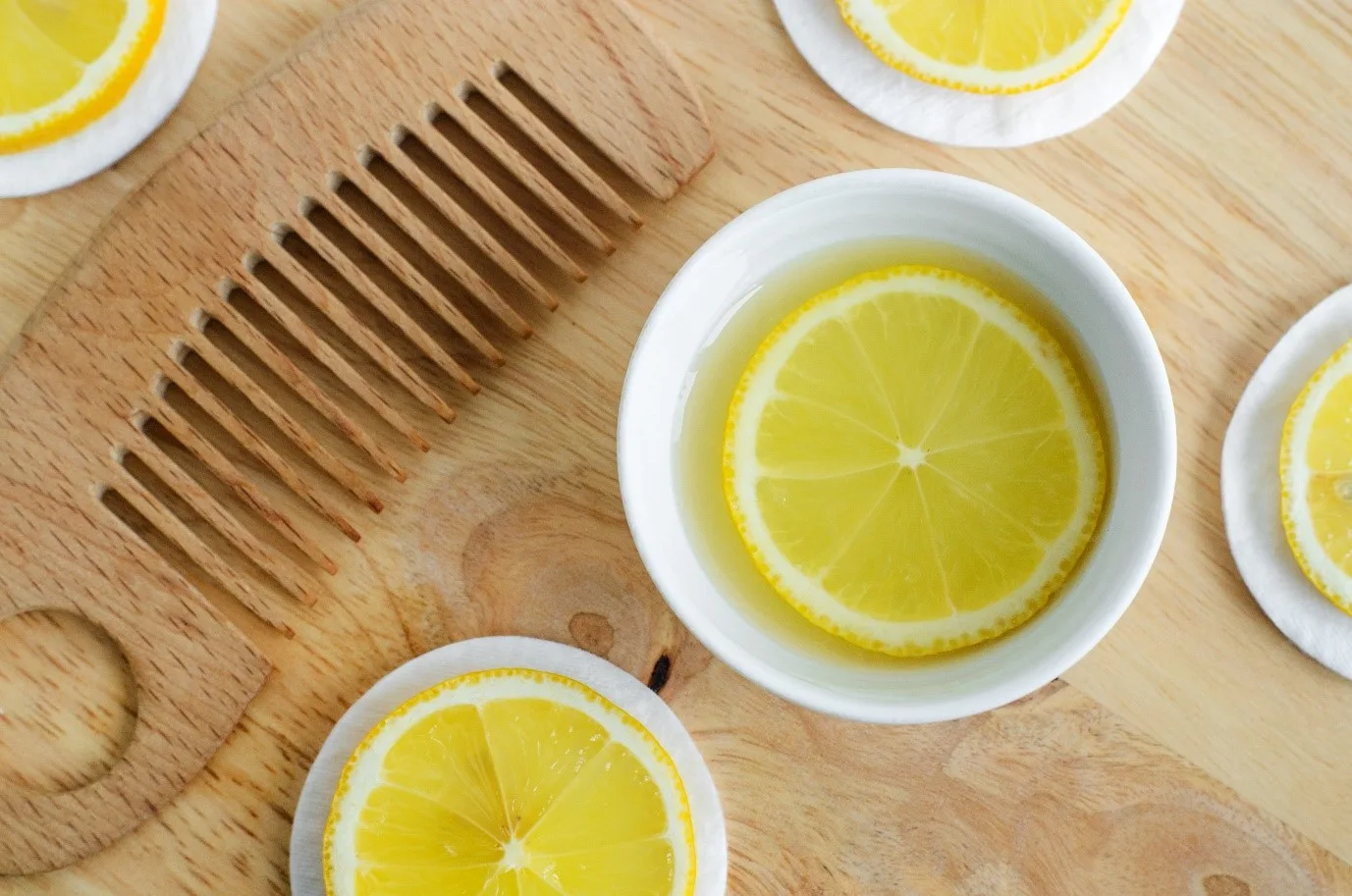IS LEMON HELPFUL IN FIGHTING DANDRUFF?
Lemon is a staple ingredient found in almost every form of cooking on the subcontinent. Not having lemons in the fridge can often feel like you’re leaving a meal ¬¬incomplete. But using a lemon for dandruff is not something that you would generally consider, remembering all the horrid times that the lemon juice has squirted and stung your eyes.

If you listen to any traditional cure that is passed down the generations, using lemon for scalp and hair conditions is a must. The benefits of using lemon juice for dandruff or any hair ailments is almost taken for granted. And there are many reasons that might justify this claim:
- Lemons are packed with Vitamin C and anti-oxidants. This is said to boost the health of your hair and even build immunity.
- The citric acid found in lemons is said to reduce oiliness and any grease present. It works to remove any excess hair products that are left behind as well.
- The biggest benefit of a lemon is its acidic nature which works to balance the pH levels of your scalp. Shampoos and dry hair can make your head quite alkaline, which can cause further problems. Lemons bring that balance back to a neutral level.
- Studies have shown them to be anti-microbial, anti-bacterial and anti-fungal, which explains why using lemon for dandruff might be a good route to take.
- Lemon juice has shown to reduce and prevent inflammation, while unclogging your hair follicles from any grime.
- One of the main features of using lemon on your hair is that it adds a layer of shine to your strands.
Is lemon good for dandruff?
Before we answer that question, it is important to understand what dandruff is. It is a skin condition that is triggered by a naturally occurring fungus, called Malassezia Globosa. When your scalp or face produces excess oil, this fungus goes into hyperdrive. It feeds on the oil and breaks it down into acids that can react with the skin. Every second person on this planet reacts to this by-product, leading to itching, redness and yellowish-white flakes.
This condition can be aggravated by poor hair care, weak diet, extreme weather fluctuations, hormonal changes or even stress. So if you’re wondering whether you can remove dandruff with lemons, you need to look at the root cause. An oily scalp causes the fungus to increase, so if lemon juice claims to remove that greasiness, it should work as a dandruff treatment at home. Furthermore, it’s acidic and anti-microbial properties help in curbing the conditions that might allow the fungus to grow.
How should you use lemon for dandruff?
There are various dandruff home remedies that can utilise lemon juice. The one point of caution is with the quantities that you apply as a hair mask, as it should not cause you more grief than joy.
- Apply diluted lemon juice directly to your hair and scalp, allowing it to penetrate into the roots. Leave it for a while and wash it with a gentle shampoo after.
- Create a scrub by combining Lemon juice, Coconut oil and Sugar that can be used to exfoliate the scalp. This should help in clearing off the leftover greasiness on your scalp.
- Apply a hair mask made from Curd and Lemon juice, leaving it on for about 30-40 minutes. Wash with a shampoo after, which should help in calming the itching and in reducing any germs.
- Using a combination of Egg white and Lemon Juice as a hair mask can work to reduce your dandruff issues. The activated enzymes help in getting rid of the dandruff causing bacteria. Wash with cold water after 20-30 minutes.
- You can create a hair mask from Lemon juice and Honey or even with Lemon juice and Aloe Vera. These will work to moisturise your scalp and calm the itching that is associated with dandruff.
- Another simple way is to drink cool lemon juice once in a while, which allows the nutrients and vitamins to enter your system. This also plays a part in cooling down your system and promoting better hair health.
Anything to be worried about?
Although lemon might not seem harmful, there are ways that it might be detrimental to your scalp health. Excess use of lemons can actually lower the pH levels into acidic territory, which is equally bad as alkaline pH levels. This can make your condition even worse and it is important to understand the amounts you use.
If your skin is already sensitive, lemon juice can actually cause more damage to your scalp. You might even experience a stinging or burning sensation on your scalp, which can lead to scarring in extreme cases. One of the biggest concerns is that excessive use of lemon juice can severely dry out your scalp, leaving your hair dull and brittle.
If you’re wondering how to cure dandruff permanently, lemons might not be the way to go. While it may have a short-term effect on the microbe, any change to the pH is just temporary. The pH level of your scalp fluctuates throughout the day and so any change by using lemon juice as a natural remedy can be quickly reversed.
Instead, to truly treat dandruff you need to use a shampoo with an active ingredient that tackles the root cause. The Head and Shoulders Lemon Fresh brings the benefits of lemons to your dandruff condition, leaving a citrusy shine on your hair. You can also try the Head and Shoulders Supreme Scalp Soothing with Aloe Vera and Argan oil, that can get rid of dandruff and moisturise your hair. The result of both is flake-free, beautiful looking hair.



